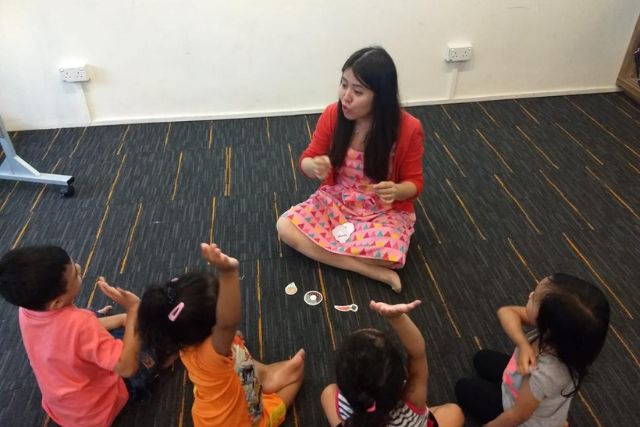Many have heard of special needs conditions such as Down Syndrome, Hyperactivity Disorder or Autism. But what is Global Development Delay (GDD)? Learn more about the signs, symptoms and what to with a child with GDD.

Signs And Symptoms
A child is diagnosed with Global Developmental Delay (GDD) when he or she has a significantly late acquisition of milestones in two or more areas of development, during the developmental period (0 to 18 years old).
Areas of growth and development include:
- Speech and language – cooing, babbling, saying the first word, combining words together, understanding and responding appropriately to what you are saying
- Motor skills (movement) – sitting up, walking, holding small objects
- Cognition – ability to learn and remember new things, recognizing familiar people and objects
- Social and emotional – responding and interacting with others, smiling, showing emotions
Causes
GDD is not uncommon. It is present in 1 to 3% of children in the world. GDD can be caused by a myriad of factors. Most of the time, it occurs due to genetic or chromosomal abnormalities related to the development of the brain and spinal cord. Other causes such as pre-natal and post-natal complications, environmental stress can also give rise to GDD. Sometimes, the cause of GDD is unknown.
Importance Of A Diagnosis

The first step, of course, would be getting a diagnosis for your child at the paediatrician’s. Many parents fear a diagnosis because of the stigma and “label” associated with their children thereafter. However, the importance of a diagnosis should override those initial concerns. Research has emphasized the importance of a diagnosis; here are several reasons why.
Firstly, it allows for a better understanding of the child aimed at increasing quality of life. This will aid decision-making for management and intervention. Secondly, it allows health professionals to anticipate certain outcomes and provide the appropriate recommendations with regards to the holistic care of your child. Lastly, this will also increase access to services such as support groups, educational support and accommodations in school.
Management And Intervention
Management and intervention of GDD come through various mediums, depending on the symptoms that your child displays. For example, if speech and language is an area of development that is slow, a Speech and Language Therapist (SLT) will help assess, diagnose speech and language difficulties, and work with you and your child in therapy to improve his or her communication. An SLT could work with you to help your child understand others better, or express himself or herself better, or establish a form of effective communication for your child and other communicative partners.
Likewise, if your child has difficulties with movement or motor skills; an Occupational Therapist will help assess areas of difficulties and conduct therapy sessions aimed at improving certain skills required for functional daily living. These are but some examples. You may want to speak to your paediatrician to get more information regarding the different therapies available and necessary for your child.
Equipped with this information, it is important that you are tuned in to your child’s development and flag out difficulties as early as possible. Early management and intervention focusing on the child has been found to be a positive contributing factor to the child’s quality of life. Furthermore, parent involvement in the management and intervention has been proven to more effective than a lack of. Working with health professionals in setting realistic goals for your child is hence vital in the whole process.
Your Well-Being As A Parent
As a parent, it is so instinctive to focus completely on your child that you forget about your own well-being. As with any other disorder, GDD affects not only your child but you and your whole family as well. Having emotional, mental and physical support during this journey is essential in ensuring your own quality of life. Only then, will you be able to provide the best care for your child and family.
By Rebecca Ng, Speech Therapist at THK Therapy Services
This was first published in The New Age Parents online magazine.
If you find this article useful, do click Like and Share at the bottom of the post, thank you.
Like what you see here? Get parenting tips and stories straight to your inbox! Join our mailing list here.
























































